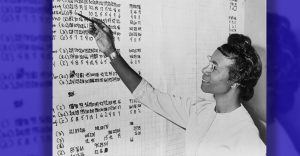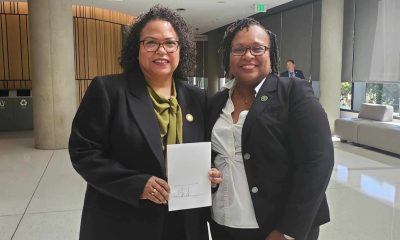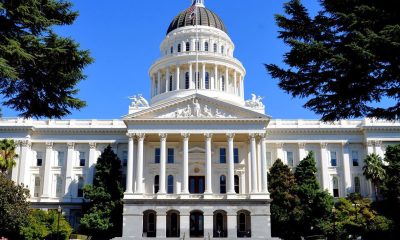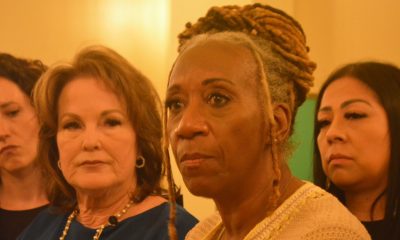#NNPA BlackPress
Blacks in California Split Over Vote That Could Raise Some Property Taxes

Proposition 15, the “Tax on Commercial and Industrial Properties for Education and Local Government Funding Initiative,” is on the Nov. 3 ballot in California.
If Californians vote yes on “Split Roll” — shorthand for the proposition’s title — the state will come up with a new taxation formula. The constitutional amendment would require counties to levy higher real estate taxes on businesses and industrial buildings than it does on residential homes.
The initiative has caused proponents and opponents in the Black community to draw battle lines. Each side has dug in, pointing to the benefits or the dangers of Prop 15 in opposing efforts to win the hearts, minds and votes of African Americans and other Californians. If passed, Prop 15 would overturn Prop 13, a provision that has for 42 years now placed a hard limit on how much tax can be assessed on any property in the state.
“The property tax hike on the November ballot will hurt minority communities — causing more gentrification, killing jobs, and increasing the cost of living for working families. We are proud to stand in opposition to the largest property tax increase in state history,” said Alice Huffman, President of the California-Hawaii Conference of the National Association for the Advancement of Colored People (NAACP).
“Despite the grand illusion presented by the initiative’s proponents, no protections exist to ensure a dime of these tax dollars is actually spent on helping lift our communities out of poverty,” Huffman continued.
San Francisco Mayor London Breed, the first Black female and second African American elected to the position, supports Prop 15, which would fund local governments in the state as well as provide more cash for public schools and community colleges.
“When I look at our dire budget deficits over the next couple of years, and then I see these revenue estimates showing how much we can invest in our community without having to raise any taxes on residents, it makes it more important for me to give my full support on this initiative,” Breed said.
The California Legislative Analyst Office estimates that, upon full implementation, the ballot initiative would generate between $8 billion and $12.5 billion in revenue per year. Of that projected revenue, 40% would be allocated to schools. The other 60% would fund local government.
At the state level, some of the Black policymakers who support Prop 15 are Sen. Holly Mitchell (D-Los Angeles), Assemblymember Kevin McCarty (D-Sacramento), and State Superintendent of Education Tony Thurmond.
A few prominent African American opponents of the initiative are Huffman; former state Assemblymember Gwen Moore; former state Senator Roderick Wright; former state Assembly Speaker Willie Brown, who was also a former mayor of San Francisco; and the Rev. Amos C. Brown, President of the San Francisco branch of the NAACP.
The politicians, former and current, have picked their sides. But the power to decide whether or not commercial and industrial properties should be shielded like residential properties are by Prop 13 lies in the hands of California’s voters.
In 1978, voters in the state approved Prop 13, which required that residential, commercial and industrial properties be taxed based on their purchase price. Under that constitutional amendment, taxes are limited to no more than 1% of the purchase price (at the time of purchase), with an annual adjustment equal to the rate of inflation or 2%, whichever is lower.
In California, market values tend to increase faster than 2% per year, meaning the taxable value of commercial and industrial properties is often lower than the market value, according to the state Legislative Analyst’s Office.
The change from the purchase price to market value would be phased-in beginning in the fiscal year 2022-2023. Properties, such as retail centers, whose occupants are 50 percent or more small businesses would be taxed based on market value beginning in the fiscal year 2025-2026 (or at a later date that the legislature decides).
The ballot initiative would make an exception for properties whose business owners have $3 million or less in holdings within California. These properties would continue to be taxed based on their purchase price.
The ballot initiative would also exempt a small business’s tangible personal property from taxes — that’s material assets like furniture, fixtures, tools and signs. For larger businesses, there would also be an exemption for tangible personal property up to a value of $500,000.
Former state Assemblymember Gwen Moore told California Black Media that Prop 15 is a “bad idea,” and that African American proprietorship will falter under the “tax burden” it imposes.
Moore is currently the founder and Chief Executive Officer of GeM Communications Group, a Los Angeles-based firm that works with clients to develop and implement public affairs, legislative strategies, and community outreach programs.
“Black-owned companies will be some of the hardest hit by eliminating Prop 13 protections for small businesses and entrepreneurs,” Moore said. “They are certain to face higher rents and skyrocketing property taxes that many cannot afford. At a time when we should be supporting small businesses, this massive property tax increase is a bad idea.”
Rex Hime, President of the California Business Properties Association, also stated his resistance to Prop 15, saying, “California already has the worst climate for business and job creation in the country. A split roll property tax will just increase pressure on many businesses that are already finding it hard to make ends meet.”
On the contrary, proponents contend that top corporations in the state benefit unfairly from Prop 13 and that Prop 15 would force them to pay taxes that correspond with the market value of their properties.
“We’re asking for companies like Disneyland or Universal Studios that make huge amounts of money to pay property taxes based on fair market value — the same thing that homeowners and, frankly, most businesses have to do,” said Josh Pechthalt, President of the California Federation of Teachers.
Prop 15 could not only affect small Black businesses in the state that mainly rely on renting or leasing, opponents argue. There could be a spike in home prices, too, according to building industry insiders.
Developers across the state, including the California Building Industry Association (CBIA), recently announced their opposition to Prop 15. CBIA says that Prop 15 will reduce the supply of housing for Californians, especially the state’s most needy, and lead to higher rents and home prices.
“California is experiencing a housing affordability crisis. Millions of families are recently unemployed and at risk of being homeless. Proposition 15 makes the current crisis worse by discouraging new home construction at the worst possible time,” said Dan Dunmoyer, president and CEO of CBIA. “If California wants to resolve the state’s housing affordability crisis, the first step must be to reject Prop 15.”
#NNPA BlackPress
LIHEAP Funds Released After Weeks of Delay as States and the District Rush to Protect Households from the Cold
BLACKPRESSUSA NEWSWIRE — The federal government has released $3.6 billion in home heating assistance after a delay that left states preparing for the start of winter without the program’s annual funding.

By Stacy M. Brown
Black Press USA Senior National Correspondent
The federal government has released $3.6 billion in home heating assistance after a delay that left states preparing for the start of winter without the program’s annual funding. The Low-Income Home Energy Assistance Program, known as LIHEAP, helps eligible households pay heating and cooling bills. The release follows a shutdown that stretched 43 days and pushed agencies across the country to warn families of possible disruptions.
State officials in Minnesota, Kansas, New York, and Pennsylvania had already issued alerts that the delay could slow the processing of applications or force families to wait until December for help. In Pennsylvania, more than 300,000 households depend on the program each year. Minnesota officials noted that older adults, young children, and people with disabilities face the highest risk as temperatures fall.
The delay also raised concerns among advocates who track household debt tied to rising utility costs. National Energy Assistance Directors Association Executive Director Mark Wolfe said the funds were “essential and long overdue” and added that high arrearages and increased energy prices have strained families seeking help.
Some states faced additional pressure when other services were affected by the shutdown. According to data reviewed by national energy advocates, roughly 68 percent of LIHEAP households also receive nutrition assistance, and the freeze in multiple programs increased the financial burden on low-income residents. Wolfe said families were placed in “an even more precarious situation than usual” as the shutdown stretched into November.
In Maryland, lawmakers urged the Trump administration to release funds after the state recorded its first cold-related death of the season. The Maryland Department of Health reported that a man in his 30s was found outdoors in Frederick County when temperatures dropped. Last winter, the state documented 75 cold-related deaths, the highest number in five years. Rep Kweisi Mfume joined more than 100 House members calling for immediate federal action and said LIHEAP “is not a luxury” for the 100,000 Maryland households that rely on it. He added that seniors and veterans would be placed at risk if the program remained stalled.
Maryland Gov. Wes Moore used $10.1 million in state funds to keep benefits moving, but noted that states cannot routinely replace federal dollars. His administration said families that rely on medical equipment requiring electricity are particularly vulnerable.
The District of Columbia has already mapped out its FY26 LIHEAP structure in documents filed with the federal government. The District’s plan shows that heating assistance, cooling assistance, weatherization, and year-round crisis assistance operate from October 1 through September 30. The District allocates 50 percent of its LIHEAP funds to heating assistance, 10 percent to cooling, 13 percent to year-round crisis assistance, 15 percent to weatherization, and 10 percent to administrative costs. Two percent is used for services that help residents reduce energy needs, including education on reading utility bills and identifying energy waste.
The District’s plan lists a minimum LIHEAP benefit of $200 and a maximum of $1,800 for both heating and cooling assistance. Crisis benefits are provided separately and may reach up to $500 when needed to resolve an emergency. The plan states that a household is considered in crisis if it has been disconnected from energy service, if heating oil is at 5 percent or less of capacity, or if the household has at least $200 owed after the regular benefit is applied.
The District’s filing notes that LIHEAP staff conduct outreach through community meetings, senior housing sites, Advisory Neighborhood Commissions, social media, posters, and mass mailings. The plan confirms that LIHEAP applicants can apply in person, by mail, by email, or through a mobile-friendly online application and that physically disabled residents may request in-home visits.
As agencies nationwide begin distributing the newly released funds, states continue working through large volumes of applications. Wolfe said LIHEAP administrators “have been notified that the award letters have gone out and the states can begin to draw down the funds.”
#NNPA BlackPress
Seven Steps to Help Your Child Build Meaningful Connections
BLACKPRESSUSA NEWSWIRE — Swinging side by side with a friend on the playground. Sharing chalk over bright, colorful sidewalk drawings. Hiding behind a tree during a spirited game of hide-and-seek. These simple moments between children may seem small, but they matter more than we think

By Niyoka McCoy, Ed.D., Chief Learning Officer, Stride/K12
Swinging side by side with a friend on the playground. Sharing chalk over bright, colorful sidewalk drawings. Hiding behind a tree during a spirited game of hide-and-seek. These simple moments between children may seem small, but they matter more than we think: They lay the foundation for some of life’s most important skills.
Through everyday play, young children begin learning essential social and emotional skills like sharing, resolving conflicts, showing empathy, and managing their emotions. These social skills help shape emotional growth and set kids up for long-term success. Socialization in early childhood isn’t just a “nice-to-have”—it’s essential for development.
Yet today, many young children who haven’t yet started school aren’t getting enough consistent, meaningful interaction with peers. Research shows that there’s a decline in active free play and peer socialization when compared to previous generations.
There are many reasons for this. Children who are home with a parent during the day may spend most of their time with adults, limiting opportunities for peer play. Those in daycare or preschool may have restricted free play, and large classrooms can reduce supervision and social coaching. Some children live in rural areas, are homebound due to illness, have full schedules, or rely on screens to fill their playtime. And for some families, finding other families with young children to connect with isn’t easy.
While these challenges can feel significant, opportunities for connection still exist in every community. Families can take simple steps to help children build friendships, create a sense of belonging, and strengthen social skills. Here are some ideas to get started:
- Storytime sessions at libraries or local bookstores
- Community offerings such as parent-child workshops, art, music, gymnastics, swimming, or sports programs
- Weekly events at children’s museums, which may include art projects, music workshops, or science experiments
- Outdoor exploration, where kids can play with peers
- Local parenting groups that organize playdates and group activities
- Volunteer opportunities where children can participate, such as pet adoption events or packing meals at a food bank
- Classes for kids at local businesses, including hardware, grocery, or craft stores
Some of these community activities are free or low-cost and give kids the chance to build friendships and practice social skills. Parents can also model positive social behavior by interacting with other parents and encouraging their children to play with their peers.
These may seem like small moments of connection, but they can have a powerful impact. Every time your child shares a toy, plays make-believe with peers, or races a friend down the slide, they’re not just playing—they’re learning the skills that build confidence, empathy, and lasting friendships. And it’s good for you, too. Creating intentional opportunities for play also helps you strengthen your own network of parents who can support one another as your children grow together.
#NNPA BlackPress
Seven Steps to Help Your Child Build Meaningful Connections
BLACKPRESSUSA NEWSWIRE — Swinging side by side with a friend on the playground. Sharing chalk over bright, colorful sidewalk drawings. Hiding behind a tree during a spirited game of hide-and-seek. These simple moments between children may seem small, but they matter more than we think
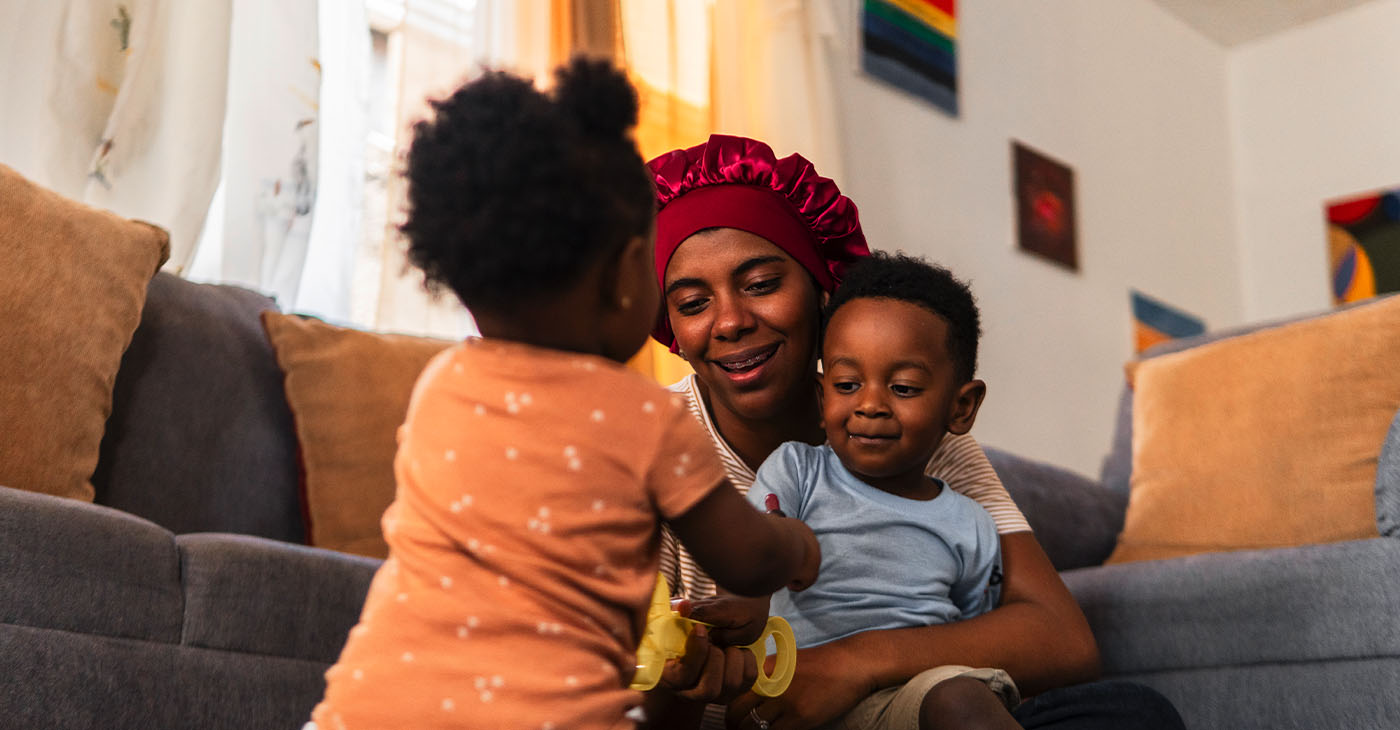
By Niyoka McCoy, Ed.D., Chief Learning Officer, Stride/K12
Swinging side by side with a friend on the playground. Sharing chalk over bright, colorful sidewalk drawings. Hiding behind a tree during a spirited game of hide-and-seek. These simple moments between children may seem small, but they matter more than we think: They lay the foundation for some of life’s most important skills.
Through everyday play, young children begin learning essential social and emotional skills like sharing, resolving conflicts, showing empathy, and managing their emotions. These social skills help shape emotional growth and set kids up for long-term success. Socialization in early childhood isn’t just a “nice-to-have”—it’s essential for development.
Yet today, many young children who haven’t yet started school aren’t getting enough consistent, meaningful interaction with peers. Research shows that there’s a decline in active free play and peer socialization when compared to previous generations.
There are many reasons for this. Children who are home with a parent during the day may spend most of their time with adults, limiting opportunities for peer play. Those in daycare or preschool may have restricted free play, and large classrooms can reduce supervision and social coaching. Some children live in rural areas, are homebound due to illness, have full schedules, or rely on screens to fill their playtime. And for some families, finding other families with young children to connect with isn’t easy.
While these challenges can feel significant, opportunities for connection still exist in every community. Families can take simple steps to help children build friendships, create a sense of belonging, and strengthen social skills. Here are some ideas to get started:
- Storytime sessions at libraries or local bookstores
- Community offerings such as parent-child workshops, art, music, gymnastics, swimming, or sports programs
- Weekly events at children’s museums, which may include art projects, music workshops, or science experiments
- Outdoor exploration, where kids can play with peers
- Local parenting groups that organize playdates and group activities
- Volunteer opportunities where children can participate, such as pet adoption events or packing meals at a food bank
- Classes for kids at local businesses, including hardware, grocery, or craft stores
Some of these community activities are free or low-cost and give kids the chance to build friendships and practice social skills. Parents can also model positive social behavior by interacting with other parents and encouraging their children to play with their peers.
These may seem like small moments of connection, but they can have a powerful impact. Every time your child shares a toy, plays make-believe with peers, or races a friend down the slide, they’re not just playing—they’re learning the skills that build confidence, empathy, and lasting friendships. And it’s good for you, too. Creating intentional opportunities for play also helps you strengthen your own network of parents who can support one another as your children grow together.
-

 Activism4 weeks ago
Activism4 weeks agoOakland Post: Week of November 12 – 18, 2025
-

 Activism3 weeks ago
Activism3 weeks agoIN MEMORIAM: William ‘Bill’ Patterson, 94
-

 Activism4 weeks ago
Activism4 weeks agoHow Charles R. Drew University Navigated More Than $20 Million in Fed Cuts – Still Prioritizing Students and Community Health
-

 Bay Area4 weeks ago
Bay Area4 weeks agoNo Justice in the Justice System
-

 #NNPA BlackPress3 weeks ago
#NNPA BlackPress3 weeks agoLewis Hamilton set to start LAST in Saturday Night’s Las Vegas Grand Prix
-

 #NNPA BlackPress2 weeks ago
#NNPA BlackPress2 weeks agoBeyoncé and Jay-Z make rare public appearance with Lewis Hamilton at Las Vegas Grand Prix
-

 Activism2 weeks ago
Activism2 weeks agoOakland Post: Week of November 19 – 25, 2025
-

 #NNPA BlackPress4 weeks ago
#NNPA BlackPress4 weeks agoThe Perfumed Hand of Hypocrisy: Trump Hosted Former Terror Suspect While America Condemns a Muslim Mayor

